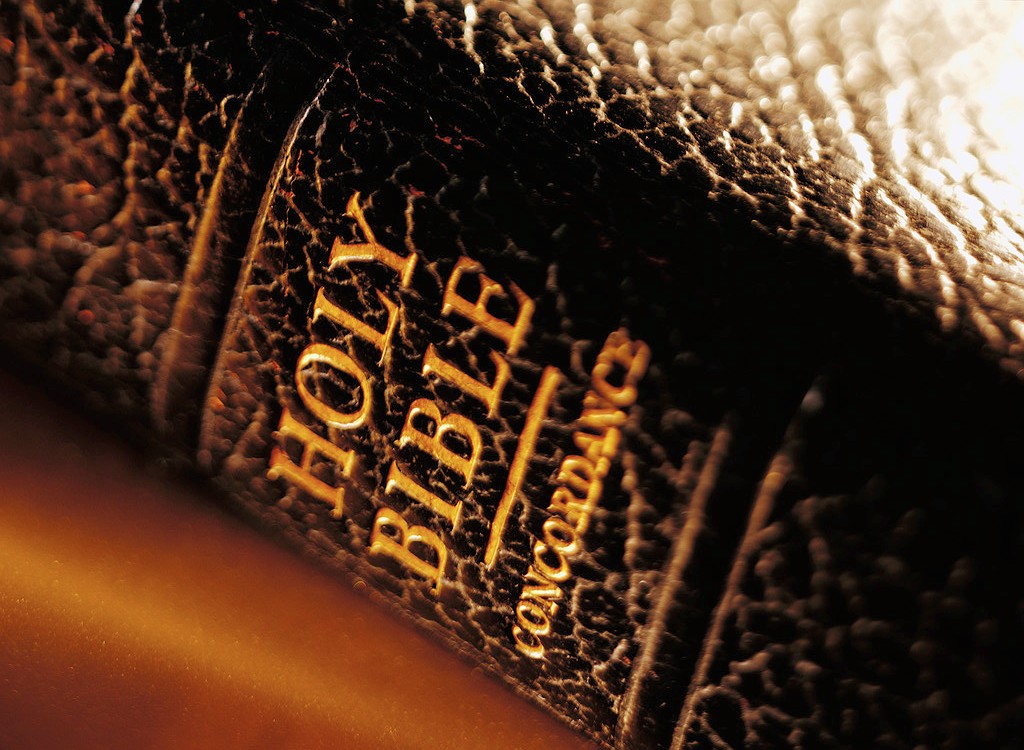 2 Timothy 3:16-17 "All Scripture is inspired by God and profitable for teaching, for reproof, for correction, for training in righteousness; 17 so that the man of God may be adequate, equipped for every good work."
2 Timothy 3:16-17 "All Scripture is inspired by God and profitable for teaching, for reproof, for correction, for training in righteousness; 17 so that the man of God may be adequate, equipped for every good work."
Introduction:
Who is in charge? To whom or to what standard do people answer? No one considers the importance of authority until there is either a decision to be made, a crisis or a major transition in life. Today's post will attempt to tease out three distinctions with respect to spiritual authority in the Christian life and the local church. When we speak of spiritual authority, it is helpful to consider three headings:
1. God is the Divine Authority
2. The Bible is His definite authority
3. All other authorities are delegated authorities.
God is the Divine Authority
Ultimate authority is possessed by God and God alone. Psalm 47:7-8 reminds us - "For God is the King of all the earth;Sing praises with a skillful psalm. 8 God reigns over the nations, God sits on His holy throne." Such authority is called by scripture and Bible teachers "God's Sovereignty". Psalm 103:19 for example states - "The Lord has established His throne in the heavens, And His sovereignty rules over all." In the New Testament we find this same truth echoed in 1 Timothy 6:15 - "which He will bring about at the proper time—He who is the blessed and only Sovereign, the King of kings and Lord of lords." The Sovereignty of God is uncontested in the Bible. Most people pay lip service to the idea of God's Sovereign, ultimate authority. People have no problem with a God running the affairs of the world as long as they still retain their own, personal, self-perceived autonomy. The moment God's authority is brought to bear on a personal level - people begin to shift in their seats. Famous general George Patton once quipped: "All human beings have an innate resistence to obedience."
The defining authority of all faith, practice and life is the Bible
When we speak of God's Sovereign final authority, how is it that such authority is brought to personally bear directly on a person? Certainly God delegates His authority to civil governments to exercise justice and maintain order in societies (Romans 13). A city government can enact laws to tell a man to not spit on the sidewalk, however civil government cannot convince the man that this is the preferrable course of action. At best, government can curb evil behavior and keep crime to a tolerable minimum. The Bible alone has the authority to not only prescribe right behavior, but is vested with God's authority and power to change lives. This is why we can say that Bible has definite authority. We will say more about this in a moment. For now, we have before us God as our Divine authority and the Bible as our definite authority. However, there is a third heading to consider when speaking about spiritual authority.
Delegated authorities derive their authority from the Bible and God
When we come to the church - who is in charge? What holds sway over the conscience of a man - the one place where right and wrong are inscribed? Such authority can be deemed final authority when it wields the same type of authority as God Himself. Pastors are delegated the authority by Christ to lead the church - however they are not the final authority. Pastors are accountable to the churches they shepherd.
The congregation of God's people function as God's delegated governing authority - however churches need to be led by competent, Biblical shepherds. Both types of leadership and authority co-exist in a local church as delegated authorities with different roles - and yet neither one can be deemed "final authority".
Further thoughts on the Bible as the defining authority of faith and life
Having observed the distinctions between Divine, definite and delegated authorities, lets speak further on the second of these - namely that the Bible is God's definite authority. When we say the Bible is God's definite authority, by what do we mean?
First and foremost, the Bible is deemed "The Word of God". The title "Word of God" means that the Bible's 66 books are God's voice in written form.
Secondly, throughout the Bible on hundreds of occasions we find the phrase: "thus says the Lord" closely attached to the words of the prophets.
Thirdly, no other book or written document in the world functions in the unique capacity of final authority like the Bible. The Baptist Faith & Message 2000 defines in more precise terms what is meant by the Bible being called "the final authority of all faith, practice and life: "Therefore, all Scripture is totally true and trustworthy. It reveals the principles by which God judges us, and therefore is, and will remain to the end of the world, the true center of Christian union, and the supreme standard by which all human conduct, creeds, and religious opinions should be tried. All Scripture is a testimony to Christ, who is Himself the focus of divine revelation." The Bible is thus the only authority that is final. It is definite.1
Closing thoughts:
We briefly considered the subject of spiritual authority in today's post. we noted the following distinctions:
1. God is the Divine Authority
2. The Bible is His definite authority
3. All other authorities are delegated authorities.
As we grasp the distinctions between these three and how they relate to one another, we will lead better and more effective Christian lives as Christ-followers and churches.
Endnotes:
1. Theologian Charles Hodge in Volume 1 of His Systematic Theology, page 159, summarizes beautifully how the Bible functions as the written form of God's authoritative voice: "Prophecy, i.e., what a prophet said, was not human, but divine. It was not the prophet’s own interpretation of the mind and will of God. He spoke as the organ of the Holy Ghost."
Hodge then later writes: What the Prophets said God said....it is another decisive proof that the sacred writers were the organs of God in the sense above stated, that whatever they said the Spirit is declared to have said. Christ himself said that David by the Spirit called the Messiah Lord. (Matt. 22:43.)
David in the 95th Psalm said, “To-day if ye will hear his voice, harden not your heart;” but the Apostle (Heb. 3:7), says that these were the words of the Holy Ghost.
Again, in (Hebrews) ch. 10:15, the same Apostle says, “Whereof the Holy Ghost also is a witness to us: for after that he had said before, This is the covenant that I will make with them after those days, saith the Lord.” Thus quoting the language of Jeremiah 31:33, as the language of the Holy Ghost."
Hodge then concludes his argument demonstrating how the Bible is the final authority of all faith, practice and life, insofar as it functions as God's verbalized authority to men in general and the church in particular: In Acts 4:25, the assembled Apostles said, “with one accord,” “Lord thou art God Who by the mouth of thy servant David hast said, Why did the heathen rage?” In Acts 28:25, Paul said to the Jews, “Well spake the Holy Ghost by Esaias the prophet unto our fathers.” It is in this way that Christ and his Apostles constantly refer to the Scriptures, showing beyond doubt that they believed and taught, that what the sacred writers said the Holy Ghost said."





